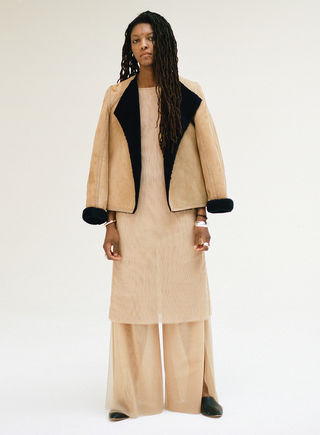Virtual World, Real Emotion
How to create and consume virtual reality in a responsible way.
By Abigail Fagan published February 10, 2020 - last reviewed on March 3, 2020

Forever drawn to both science and art, biologist turned marketer Ashley Baccus Clark is now the creative director of Hyphen Labs, a collective of women interested in science, art, and technology. In one of their ventures, Clark and her colleagues created a virtual installation that puts the viewer into the body of an African American scientist at a reimagined hair salon where the women experiment with cognitive enhancement techniques. Through virtual reality, Clark hopes to both reduce prejudice and inspire women of color to embrace science and technology.
You’ve argued that virtual reality should be viewed cautiously. Why?
Virtual reality has been touted as an empathy machine: You’re putting yourself into someone else’s shoes and thinking that you understand their experience. But that assumption can be tricky. There’s so much poverty porn, as in “I’m going to immerse you in this war zone.” You put on a headset, are dropped into the middle of it, and come out believing you know what it’s like.
The artist Agnes Martin wrote that sometimes with the act of reading a prayer, you feel that you’ve prayed. With experiencing something digitally, you think you’ve experienced it physically. We have to be aware of framing a story about someone’s life in a way that the person hasn’t agreed to. When you’re showing empathy toward others, you could feel like you’re above them, rather than being an observer.
I prefer the frame of mindfulness—being mindful of an experience and then continuing to educate myself, engage with the content, and move through the world differently.
One of the most powerful virtual reality experiences I’ve had is “Notes on Blindness.” It’s an abstract story about a man who is losing his sight. You see and engage with fuzzy people and shapes, and you hear him narrating what it is like. It was this sensory experience of beauty even though you don’t see things sharply or clearly. I started crying; I felt so moved. I don’t know that I felt empathy. I felt challenged, thinking about how two things could be true, how someone could be going blind and still find beauty in his surroundings, learning how to re-engage with the world.
